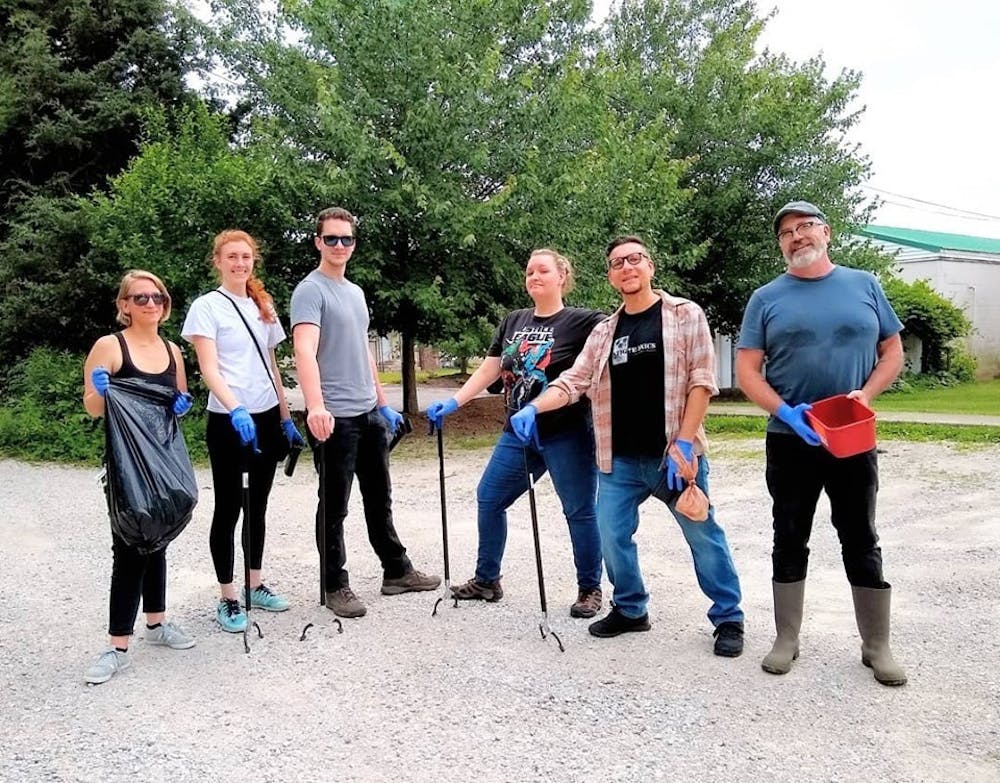Every Friday, volunteers with pick-up sticks walk the streets of Bloomington. They're looking for a specific type of trash: syringes.
Community clean-up walk volunteers have removed one to six syringes at each walk site, said Kathy Hewett, lead health educator of the Monroe County Health Department. Led by the Monroe County Health Department and Indiana Recovery Alliance, volunteers pick up trash and safely dispose of abandoned syringes.
The clean-ups happen weekly on Fridays from 4-5:30 p.m. Volunteers have walked through sites such as Butler Park, Winslow Woods, areas of the B-Line trail and outside the recreation center the Warehouse.
"We are not finding very many," said Kass Botts, executive director of the Indiana Recovery Alliance. "The data is showing that there aren't many syringes improperly disposed of in our community."
Monroe County Health Department harm reduction educator Melanie Vehslage said the clean-up leaders start by identifying a place to clean. Volunteers then meet in a parking lot near the site to obtain gloves, trash bags and other supplies.
If a volunteer is unfamiliar with proper safety procedures, someone from the health department or the Indiana Recovery Alliance will teach them the correct process.
"We walk that walk to be productive," Hewett said.
Botts said a fear of felony arrest leads many people to abandon syringes. In Indiana, it is illegal to possess a syringe for the purpose of injecting an illegal substance.
The health department started discussing a community clean-up program after it received a harm reduction grant surrounding HIV prevention, Hewett said.
Community clean-ups are a part of the health department's effort to be involved in the community and provide a place for community members to get involved with harm prevention, Hewett said.
Each walk has had five to six volunteers since beginning two months ago, Vehslage said.
"We thought it would be useful to help empower community members," Hewett said.
Calls complaining of abandoned syringes are forwarded to the health department, which sends out a worker to procure it, Hewett said. Teaching members of the community to safely dispose of a syringe will allow the removal to take place more quickly.
According to a handout from the Indiana Recovery Alliance, someone interested in disposing of a syringe should bring a sharps disposal container to the syringe. He or she should pick up the syringe in the middle of the barrel using tongs or gloves and place it needle end down into the container before securing the lid and washing his or her hands.
Hewett said there is very little health risk in picking up a syringe if correct safety procedures are used.
"This is something anyone can do," Botts said.
Vehslage said she has offered to train members of local neighborhood associations on safely removing syringes. One site of a community clean-up walk was requested by a neighborhood association.
"One week there was a nice young lady who came out, and she said 'Thanks so much for what you are doing,'" Vehslage said.
Botts said she believes syringe abandonment could be reduced if there were more sharps disposal containers in the Bloomington community. The health department keeps a map of current sharps disposal containers.




